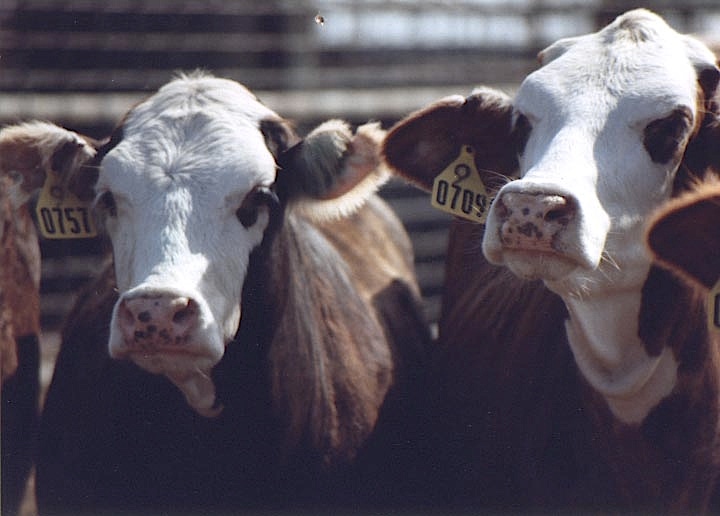
It goes without saying that farms should have detailed animal care and handling policies to prevent animal abuse, and producers should conduct ongoing employee training to ensure they understand and utilize proper animal care standards.
But farm owners may need to implement a few extra policies to prevent deceitful employees from creating videos on a farm, according to Tiffany Dowell Lashmet, an agricultural law specialist with Texas A&M AgriLife Extension Service in Amarillo.
Dairy producers, as well as other livestock operations, have had issues with employees taking deceitful videos, only to release them on social media and cast aspersions on the industry, Dowell Lashmet says.
For the latest on southwest agriculture, please check out Southwest Farm Press Daily and receive the latest news right to your inbox.
She shared some tips with those attending the recent High Plains Dairy Conference in Lubbock on how to avoid and survive these videos.
First, Dowell Lashmet discussed the potential legal claims if a deceitful video is taken on the farm.
She says farm protection laws have been enacted in only eight states, and each state varies on what is offered, from laws prohibiting the taking an undercover video on agriculture premises to prohibiting someone from using false credentials to gain employment and access to video on a farm.
But even in the states where the laws exist, they have been challenged on constitutional grounds, Dowell Lashmet says. For example, the Idaho law was recently found to violate the First, free speech, and Fourteenth, citizenship rights, amendments, and similar challenges are pending in North Carolina and Utah.
There also are some common law areas where agriculture entities might be able to sue, including fraud if someone lies or provides false information to get hired. But if a person provides all the proper identification and truthful information, fraud has not been committed. Someone can’t be sued for trespass if they were hired, and claims for breach of duty of loyalty and defamation can be complex and hard to litigate.
PREPARE FOR INVESTIGATION
Also, Dowell Lashmet says, litigation is expensive and the damage is already done.
“So the best advice I can give you is to prepare as if an investigation is going to happen,” she says. “The most important place to start is with your hiring practices and employee training.”
She says employers first need to discuss their policy with an attorney and be consistent across the board.
“You can’t just ask certain applicants if they have been involved with animal rights groups – you have to ask everyone,” she says.
Dowell Lashmet also offers tips that might help prevent problems or provide a stronger case to litigate or prevent a deceitful video from being played:
– Have an applicant swear to the truth of the employment application under penalty of perjury.
– Check references. Go one step beyond the phone number they provide to make sure it matches the company they might say they’ve been previously employed with.
– Google the potential employee’s name. It’s free.
– Check social media pages – Facebook, Twitter, Instagram. “You’d be surprised what people post,” she said.
– Consider paying for a professional background check.
Dowell Lashmet says there are generally warning signs that will alert an employer something is not right.
“Watch for someone seeking employment below their skill level; or if their previous employment is out of character with agriculture work; or if they are offering to work for limited or no pay, after hours or to do jobs no one else wants to do. Be concerned if you see employees where they shouldn’t be or on the premises when they shouldn’t be.”
She suggests employers create an employment contract or a handbook, and get it reviewed by an attorney. The handbook can address a variety of issues such as a provision that all cell phones must be left in vehicles or lockers, or rules that unauthorized photos or videos are the property of the facility owner.
BE PREPARED
“Also keep your longtime, trusted employees on the lookout for any problems, including any animal abuse or mistreatment or any videos being taken,” she says. “And require any animal abuse seen by an employee to be immediately reported to the owner.”
And finally, Dowell Lashmet says, be ready if it happens. Have a crisis team in place, which she says should include an attorney, media relations person and veterinarian. Have a written policy in place – know who is and isn’t going to talk.
“If a video is released, immediately send a spoliation letter to the organization releasing it so they have to keep all the video footage shot by the employee,” she says. “This allows you to make sure things aren’t taken out of context. An attorney may also seek an injunction to prevent the video from being played further if the proper requirements are met.”
And, if some unwanted practices were taking place, “you want to take swift action that fires the employee who committed the acts. If there is wrongdoing, take responsibility up front, don’t blame others.”
Dowell Lashmet says it is also important to have good will built in a community before a deceitful video breaks, and “make sure you maintain transparency by educating people on what we are doing – let them hear it from you, why you do certain things certain ways.”
About the Author(s)
You May Also Like






